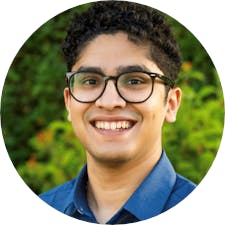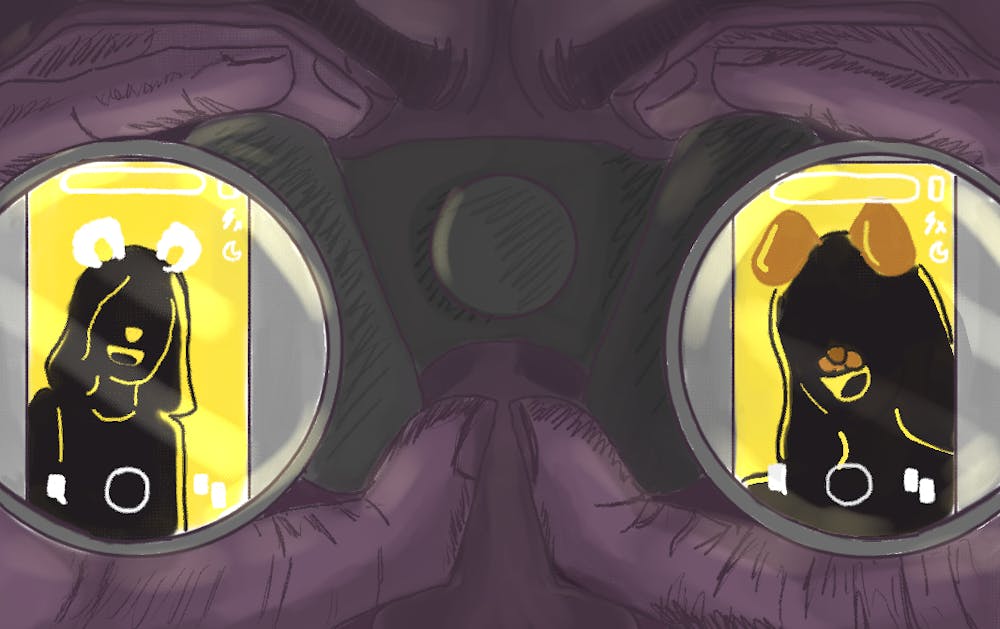Using social media apps to connect with friends, family members and classmates means sharing information online that has the potential to be tracked and used not only by the social media company itself but also by outsiders.
Roughly 98% of people in the U.S. aged 18 to 24 use social media at least once a month, according to a national study by Experian Simmons.
In October, Microsoft President Brad Smith told CNN that privacy online has reached a “crisis point," and recently, a Tempe man was suspected of tracking teenage girls on Snapchat in order to go to their homes and peer into their windows.
By increasing awareness of how certain social networks are using information shared on specific platforms and limiting specific content shared on social networks, users can find ways to better protect their information online and understand how networks use their information.
In 2017, Snapchat came out with an update that allows users to see the location of their friends on a feature called Snap Maps. The app claims the service is meant to be harmless, but according to Katina Michael, a professor at the School for the Future of Innovation in Society, they can be “misused and abused."
Michael also said despite Snapchat’s terms and conditions requiring that users must be 13 years or older to use the app, there are children in elementary school actually using the app, thus making it that much more dangerous.
“There is a mismatch between the expectation of the provider and the user,” Michael said, adding that this is something that needs to be addressed given the recent crimes.
“What kind of smart capabilities can be introduced through parental interaction where (Snapchat) knows if the user is 13 and above?” she asked.
Currently, Michael is working with a team that is focused on holding service providers accountable for the services that they provide in the marketplace.
Jamie Winterton, director of strategy at ASU’s Global Security Initiative, said that applications using location services can have good intentions, but the results can be harmful.
Many applications are used to “bring people closer” and connect people with one another, Winterton said, but she added that "without adequate privacy and security, these applications can bring us closer to people we don’t want."
Winterton said that when these algorithms are created, privacy and security are not accounted for. While users can choose not to share their location, she said it is still on the user to be proactive and selective.
“Allowing people to be open with their data is fine, but we also need to make it easy for people to close that off,” Winterton said. “What I would love to see are apps going to an opt-in model where everything is private until you decide to share it.”
Through her research and experience with social media platforms, Molly Luther, a junior studying computer science, suggests students who use their social accounts for non-business purposes to switch their profiles to the highest privacy settings possible.
When profiles are public, people can see everything from one's followers to their posted photos and the tagged locations, Luther said, meaning "that virtually anyone can access your information.”
Luther said adjusting privacy settings is important for some users, but data shared online is never truly private, adding that people should limit who can access their information by who they allow to follow them.
“As an informed consumer, you should know that whatever you're doing online is tracked,” Luther said
By limiting the use of geotags on social media, posting photos at a certain location only after the user has left the spot and not posting information about their house or apartment, students can feel safer sharing information on social networks, she said.
Even though privacy concerns online can instill fear in students, people “shouldn't be scared to do daily things," Luther said, adding that, “People shouldn't really be afraid to document their life. (But you should) be aware of your audience and be respectful of who's following you.”
Reach the reporters at jlmyer10@asu.edu and ljchatha@asu.edu and follow @jessiemy94 and @alphaluke15 on Twitter.
Like The State Press on Facebook and follow @statepress on Twitter.

Luke Chatham is a Community & Culture reporter and previous Business and Tech reporter. He also worked in the studio production crew for Cronkite News and is currently a freelance reporter and writer for Arcadia News.




